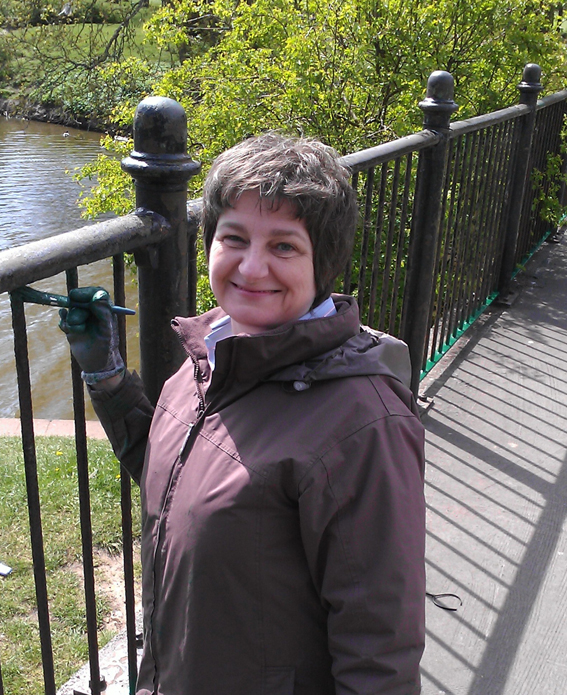Alison Micklem Community-minded
“Letting go is hard, but we hope to leave a legacy of transformed communities”

Writing this last column for Reform had reminded me that letting go is always hard. There came atime when Jesus had to entrust the task of continuing his work to the disciples – whether they had really grasped the full impact of what he had been teaching them or not. Fortunately, over time, and with the help of the Holy Spirit, they not only understood, but developed and spread his message.
All of us face times of letting go. In the church-related community work programme we have fixed contracts, so we know when that time will be and can put an “exit strategy” in place, aiming to ensure that at least some of the activities with which we have been involved will be sustained. Perhaps more important, yet harder to quantify, is the legacy we hope to leave, of changed attitudes and transformed communities.
When reflecting on our work at our recent residential, the list of activities in which we engage was long and varied. Even more telling were the responses concerning: how we think the church benefits from our ministry, the impact of our work on the community, how we see ourselves, and what we would like to tell the wider church. The following selection does not do justice to the range of responses, but it gives a flavour of our hopes, intentions and commitment:
Church-related community workers are urban missionaries and practical theologians, meeting people where they are, reaching places and people that other initiatives – both church-based and secular – do not reach. Our ministry is transformational, not simply making a difference to people’s circumstances and environment, but changing the way in which they see themselves and understand life.
We have a prophetic role in challenging the church to change – not least by prioritising kingdom growth over church growth (we are called to share good news, not fill pews!) It strikes us that people come to our projects because they want to, bringing anticipation and joy that is often lacking from even the most regular churchgoers – many of whom list a sense of duty and force of habit among their reasons for attending.
We are able to challenge some of the traditions and expectations with which the church is burdened; not to undermine it, but rather to broaden its horizons, showing that despite popular belief, it might still have something valuable to offer. We believe that the church has the potential to be so much more than it currently perceives itself to be capable of, because church is about people, not buildings, and people – all people – are offered the transforming gift of God’s love and invited to share in life in all its fullness.
Why am I attempting the impossible task of summarising all that our ministry is and aspires to be – all that I have been sharing through stories of our engagement over the past two years – in the space of a few short paragraphs? Others will continue to give an account of our particular ministry in a variety of ways, but I hope that understanding and connections will continue to develop through what has been told on this column’s pages. Having said that, I know one of the difficult things about letting go is that one has no control over what others will make of one’s legacy.
I face the same issues as I move into the final phase of my time here in Liverpool. I ask myself: what difference has my presence made? And what lasting impact will there be? While it is important to ask the questions, it is not helpful to dwell on them too long – not least because many of the answers lie in the future. The results, like our efforts, are dependent on God’s grace and will unfold in God’s time.
I leave you with an image of one of my achievements which I am fairly confident will last at least a few years. During a recent community initiative to give our local park a facelift, I spent many hours painting the railings of a bridge (pictured). With every brush-stroke I left a message for future park-users who enjoy the improved environment: I was here!





